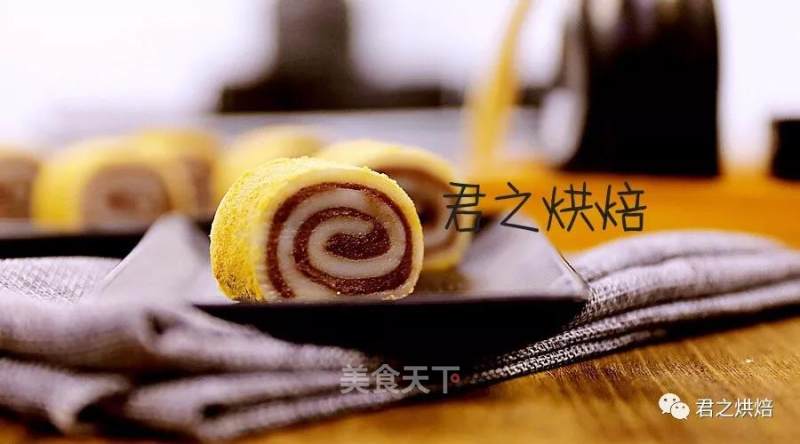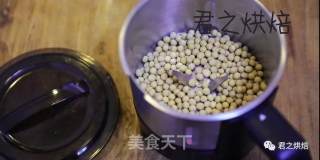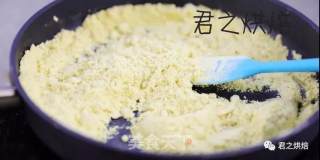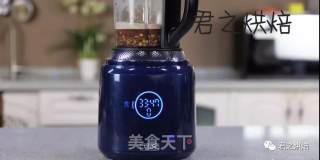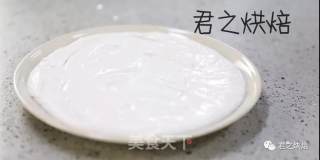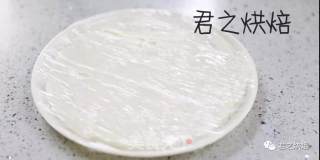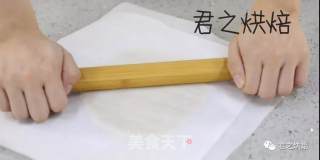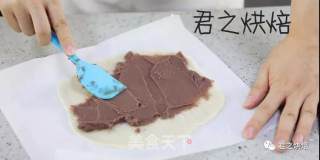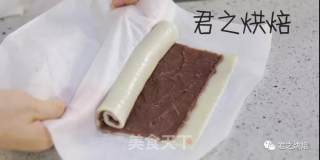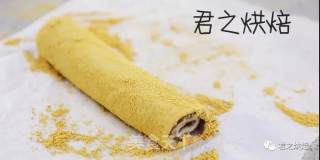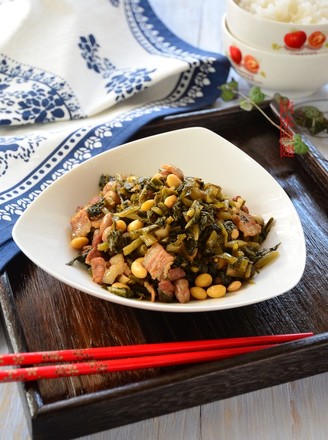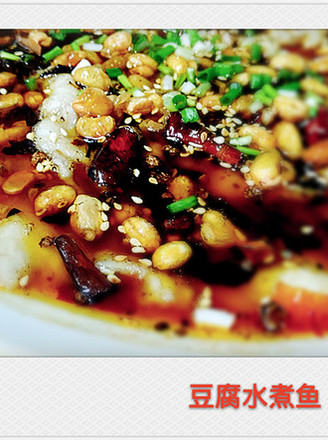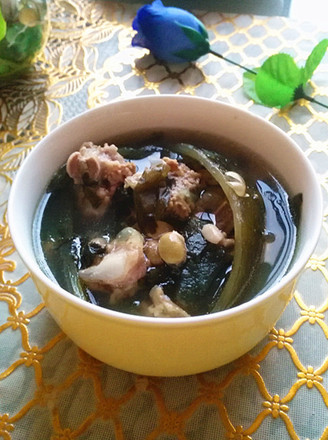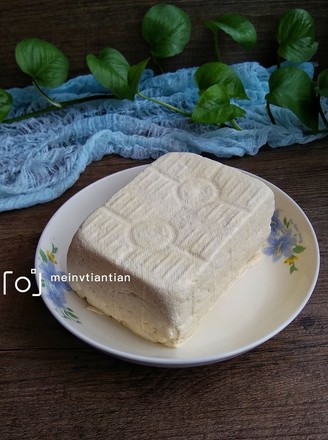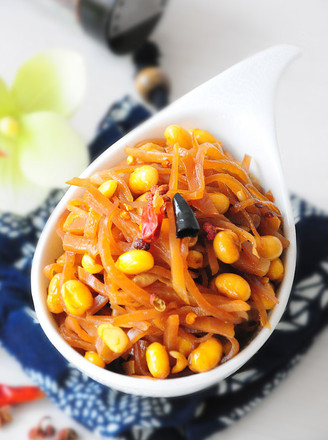Donkey Rolling
1.
First make bean noodles. Put the dried soybeans into the dry grinding cup of the wall breaker, and use the dry grinding function to make fine soybean noodles (soybean flour). PS: Generally speaking, dry soybeans do not need to be cleaned specially. If you are not at ease, you can choose organic dried soybeans or wash the dried soybeans before drying (washed dried soybeans cannot be directly ground and must be dried).
2.
Put the ground soybean noodles into the pot and start to fry slowly over low heat.
3.
Stir continuously until the soybean noodles are cooked and fragrant. Continue to stir fry, always stir fry soy bean noodles like the yellow-brown in the picture (it smells a little mushy, but don't really fry it, make it darker). Use the fried bean noodles after cooling.

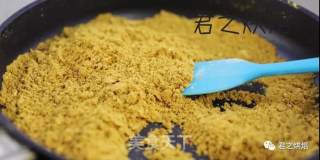
4.
Then make red bean paste. After the adzuki beans are cleaned, pour them into the broken cup of the wall-breaking machine, add 420 grams of water, and select the "mian porridge" program (the adzuki beans do not need to be soaked in advance). *Be careful not to choose soy milk or other procedures that will break the walls at high speed, otherwise the final mixture will be too thick and difficult to beat evenly. You need to add sugar after cooking the porridge. After the sugar melts, the mixture will become thinner, and then the wall breaking function can be used. *If your wall-breaking machine does not have the "mian porridge" function, please select the similar porridge and soup procedures on the wall-breaking machine.
5.
After the cooking is complete, the red beans will be boiled into a thick porridge. Immediately add the granulated sugar while it is hot and stir it slightly to dissolve the sugar. At this time, the texture of the red bean porridge will become thin.

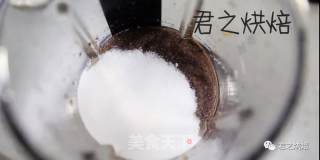
6.
Run the "Fruit and Vegetable" program again to thoroughly beat the red beans and make the bean paste filling. Take out the red bean paste, cool it down and use it (generally, if you make it strictly according to the amount of the recipe, after the whipping is completed, you will get the red bean paste that can be used directly and has just the right consistency. No additional frying is needed. ). *What if there is no wall breaker? Soak the red beans overnight, then add enough water in a saucepan and simmer for about 1 hour until the red beans are very soft. Then add sugar, stir fry in a pan over medium heat, and fry until thick and filling. The red bean paste obtained in this way is also very soft, but the taste will be different. *You can also use commercially available bean paste fillings. Pay attention to buying soft water-based bean paste filling (usually only red beans, sugar and water in the ingredient list). Don't buy the oily bean paste filling that makes Cantonese mooncake fillings.

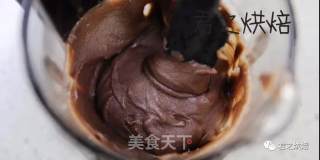
7.
Then steam the glutinous rice noodles. Mix the glutinous rice flour with water and mix it thoroughly with a spatula to form a very wet dough (different glutinous rice flour may have different water absorption properties and need to be adjusted as appropriate). Take a flat plate, put some oil on the plate, and spread the glutinous rice dough flat on the plate (the flat method is easier to steam thoroughly and can shorten the steaming time).
8.
Steam on high heat for about 15 minutes, and then steam the dough completely. Cover the steamed dough with plastic wrap and wait for it to cool.
9.
The glutinous rice dough can be wrapped when it is cooled to the same temperature as the palm of your hand (if the glutinous rice dough is very sticky, you can keep it in the refrigerator to continue to cool before wrapping). Take half of the glutinous rice dough, roll it out between two oiled paper, and roll it into a thin rectangle (you can use oiled paper to stick the dough to the chopping board. If you are still afraid of stickiness, you can sprinkle some bean noodles on the oiled paper, but don't spread too much) .
10.
Remove the oily paper on the surface and apply a layer of bean paste filling, leaving some blank space on the edge and don't apply it (you can cut the four sides flat if you want to make the appearance more beautiful).
11.
Roll up. Pay attention to the tightness.
12.
Finally, roll the dough in the bean noodles a few times, so that the surface is covered with a lot of bean noodles, and the donkey is ready to roll. Home-made donkey tumbler does not contain additives, so it is the most delicious to eat right now, and try to finish it on the same day.
13.
Finished picture.

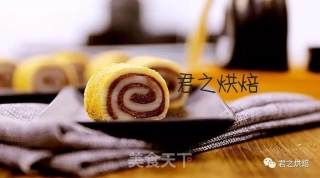
Tips:
1. The glutinous rice dough of this formula can be made into two donkeys, and there will be a lot of red bean paste and bean noodles, which can be saved for next time (red bean paste can be stored in the refrigerator for about a week, and the bean noodles can be stored at room temperature. can).
2. If you want to cut the noodles beautifully, you should dip a knife in water and then cut it. When cutting, don’t go straight to the end (it will cause the dough to deform), but gently "saw" back and forth to cut down, just like using a serrated knife (but you can use an ordinary multi-purpose knife or a kitchen knife. Serrated knife).
3. The donkey can be rolled and placed at room temperature. Don't store it in the refrigerator, or it will become hard. After eating that day, if it becomes hard, you can put it in the microwave for a while (heat to lukewarm), and it will soften again.
4. This is a donkey roll that needs to be cooked and eaten. If you want to keep it longer, you can use the snowy skin of snowy mooncakes instead of glutinous rice dough (click here for how to make snowy mooncakes), and you will get a softer and waxy donkey roll, and it can be sealed and stored in the refrigerator 1- Will not harden in 2 days. Dough without ice skin will be more sticky. Remember to sprinkle some bean noodles to prevent stickiness when rolling.

